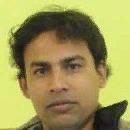International Journal of Image, Graphics and Signal Processing (IJIGSP)
IJIGSP Vol. 13, No. 4, 8 Aug. 2021
Cover page and Table of Contents: PDF (size: 1020KB)
A New Image Quality Index and it’s Application on MRI Image
Full Text (PDF, 1020KB), PP.14-32
Views: 0 Downloads: 0
Author(s)
Index Terms
IQA, MFSIM, SSIM, PC, GM, MRI.
Abstract
Image quality assessment (IQA) is a process of measurement of the image quality using the evaluations of subjective value with the model of computation. The quality of the image can be calculated by using different types of method where each method works with using isolated features of image. One very renowned method is structural similarity index (SSIM) which measured the quality of image comparing structure of image and the structure stage is obtained from pixel-based stage. FSIM (Feature Similarity Index) measured image quality using low level feature and Gradient magnitude (GM) act as primary feature of image. In this work, a novel MFSIM (Moderate Feature Similarity Index) is introduced which work with full reference IQA, HVS (Human Visual System) and low-level feature of images. In MFSIM the Phase Congruency (PC) is used as primary feature where the PC is dimensionless contrast invariant. In the moderated FSIM the Gradient Magnitude (GM) of the image is considered as the feature of secondary. For application IQA, we applied into segmented image with original image using MRI images. The distortion level of the segmented image is calculated using different image quality index measurement techniques. The image can be used in numerous purposes and the quality of image is distorted for different reason. There are lots of applications where noise less of perfect image is used for getting exact result. So it is very important to find out the distortion level of image. For instance during the segmentation of MRI image for brain tumor detection, the exactness of image need to calculate so that the brain tumor can be find out accurately. So the main purpose of this research work is to introduce a new image quality index and find out the brain tumor and the segmented image quality.
Cite This Paper
Md. Tariqul Islam, Sheikh Md. Rabiul Islam, " A New Image Quality Index and it’s Application on MRI Image", International Journal of Image, Graphics and Signal Processing(IJIGSP), Vol.13, No.4, pp. 14-32, 2021. DOI: 10.5815/ijigsp.2021.04.02
Reference
[1]Z. Wang, A.C. Bovik, H.R. Sheikh, and E.P. Simoncelli, “Image quality assessment: from error visibility to structural similarity”, IEEE Trans. Image Process., vol. 13, no. 4, pp. 600-612, Apr. 2004.
[2]N. Damera-Venkata, T.D. Kite, W.S. Geisler, B.L. Evans and A.C. Bovik, “Image quality assessment based on a degradation model”, IEEE Trans. Image Process., vol. 9, no. 4, pp. 636-650, Apr. 2000.
[3]H.R. Sheikh and A.C. Bovik, “Image information and visual quality”, IEEE Trans. Image Process., vol. 15, no. 2, pp. 430-444, Feb. 2006.
[4]Sheikh Md. Rabiul Islam; Md. Tariqul Islam; Xu Huang, “ A new approach of image quality index” Advances in Electrical Engineering (ICAEE), 2017 4th International Conference on, Dhaka, Bangladesh, pp.223-228, 28-30 September, 2017.
[5]Z. Wang, E.P. Simoncelli, and A.C. Bovik, “Multi-scale structural similarity for image quality assessment”, presented at the IEEE Asilomar Conf. Signals, Systems and Computers, Nov. 2003.
[6]D. Marr, Vision. New York: W. H. Freeman and Company, 1980.
[7]Natarajan, Krishnan, Natasha Saneep Kenkre,” Tumor Detection using threshold operation in MRI Brain Images” International Conference on Computer intelligence and Computing Reseach, pp 1-4, 2012.
[8]Nassir Salman," Image Segmentation Based on Watershed and Edge Detection Techniques”, The International Arab Journal of Information Technology, vol 3,pp 104-110,2006.
[9]S. Armato III, M. Giger, and H. MacMahon, “Automated detection of lung nodules in CT scans: Preliminary result,” Med. Phys. 28, 1552–1561 _2001_.
[10]Yu-Li You and M. Kaveh, “Fourth order partial differential equations for noise removal,” IEEE Trans. Image Processing, Vol. 9, No. 10, 2000, pp 1723-1730.
[11]H. S. Prashanta, Dr. Shahidhara. H.L. Dr. K.N.B. Murthy Madhavi Lata. G. “Medical Image Segmentation” (IJCSE) International Journal on Computer Science and Engineering, Vol. 02, 2010, No.04, 1209-1218.
[12]M.C. Morrone and D.C. Burr, “Feature detection in human vision: a phase-dependent energy model”, Proc. R. Soc. Lond. B, vol. 235, no. 1280, pp. 221-245, Dec. 1988.
[13]M.C. Morrone, J. Ross, D.C. Burr, and R. Owens, “Mach bands are phase dependent”, Nature, vol. 324, no. 6049, pp. 250-253, Nov. 1986.
[14]D. Gabor, “Theory of communication”, J. Inst. Elec. Eng., vol. 93, no. III, pp. 429-457, 1946.
[15]D. J. Field, “Relations between the statistics of natural images and the response properties of cortical cells”, J. Opt. Soc. Am. A, vol. 4, no. 12, pp. 2379-2394, Dec. 1987.21
[16]P. Kovesi, “Image features from phase congruency”, Videre: J. Comp. Vis. Res., vol. 1, no. 3, pp. 1-26, 1999.
[17]W. Wang, J. Li, F. Huang, and H. Feng, “Design and implementation of log-Gabor filter in fingerprint image enhancement”, Pattern Recognit. Letters, vol. 29, no. 3, pp. 301-308, Feb. 2008.
[18]B. Jähne, H. Haubecker, and P. Geibler, Handbook of Computer Vision and Applications. Academic Press, 1999.
[19]L. Henriksson, A. Hyvärinen, and S. Vanni, “Representation of cross-frequency spatial phase relationships in human visual cortex”, J. Neuroscience, vol. 29, no. 45, pp. 14342-14351, Nov. 2009.
[20]Z. Wang and A. C. Bovik, “A universal image quality index,” IEEE Signal Processing Letters, vol. 9, pp. 81–84, Mar. 2002.
[21]Z. Wang, H. R. Sheikh, and A. C. Bovik, “Objective video quality assessment,” in The Handbook of Video Databases: Design and Applications (B. Furht and O. Marques, eds.), pp. 1041–1078, CRC Press, Sept. 2003
[22]E.C. Larson and D.M. Chandler, “Categorical Image Quality (CSIQ) Database”.
[23]M. Masroor Ahmed. Dzulkifli Bin Mohammad, " Segmentation of Brain MR Images for Tumor Extraction by Combining Kmeans Clustering and Perona-Malik Anisotropic Diffusion Model", IEEE International Journal of Image Processing,pp27-34,2011
[24]S. Beucher and F. Meyer, “The morphological approach to segmentation: The watershed transform,” in Mathematical Morphology in Image Processing, E. R. Dougherty, Ed. New York: Marcel Dekker, 1993, vol. 12, pp. 433–481.
[25]S. Armato III, M. Giger, and H. MacMahon, “Automated detection of lung nodules in CT scans: Preliminary result,” Med. Phys. 28, 1552–1561 _2001_.
[26]R. Haralick, “Statistical and structural approaches to texture,” Proc. IEEE 67, 786–804 _1979_.
[27]Swati Tiwari, Ashish Bansal and Rupali Sagar, “Identification of brain tumors in 2D MRI using Automatic seeded region growing”, Journal of Education, vol 1, issue 2,2012.
[28]Nursuriati Jamil, Tengku Mohd Tengku, Zainab Bakar," Noise Removal and Enhancement of Binary Images Using Morphological Operations" IEEE International Symposium on Information Technology, pp1-6,2008
[29]N. Ponomarenko, V. Lukin, A. Zelensky, K. Egiazarian, M. Carli, and F. Battisti, “ TID2008 - A database for evaluation of full-reference visual quality assessment metrics”, Advances of Modern Radioelectronics, vol. 10, pp. 30-45, 2009.
[30]Ninassi, P. Le Callet, and F. Autrusseau, “Subjective quality assessment-IVC database”.
[31]Y. Horita, K. Shibata, Y. Kawayoke, and Z.M. Parves Sazzad, “MICT Image Quality Evaluation Database”.
[32]D.M. Chandler and S.S.Hemami, “A57 database”.
[33]A Feature Similarity Index for Image Quality Assessment Lin Zhang, Student Member, IEEE, Lei Zhang, Member, IEEE, Xuanqin Mou, Member, IEEE, and David Zhang, Fellow, IEEE
[34]C. Yang and S.H. Kwok, “Efficient gamut clipping for color image processing using LHS and YIQ”, Optical Engineering, vol. 42, no. 3, pp.701-711, Mar. 2003.
[35]M.C. Morrone and R.A. Owens, “Feature detection from local energy”, Pattern Recognit. Letters, vol. 6, no. 5, pp. 303-313, Dec. 1987.

